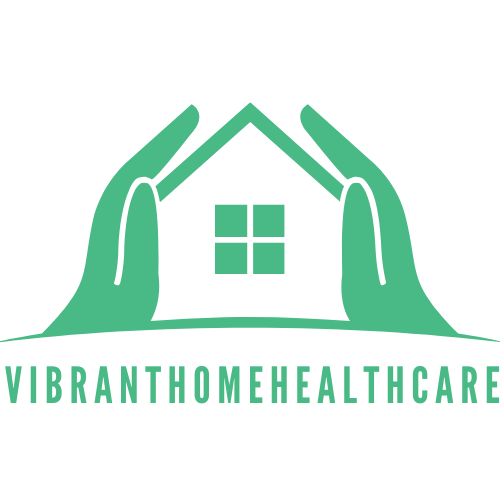Navigating the postpartum period can be overwhelming, especially when it comes to health concerns. One critical aspect that often gets overlooked is the risk of infection. After childbirth, a woman’s body undergoes significant changes, making it more vulnerable to infections if proper care isn’t taken.
I’ve seen firsthand how a well-structured postpartum care plan can make all the difference in recovery. Understanding the potential risks and implementing preventive measures can help new mothers focus on what truly matters—bonding with their baby and healing. In this article, I’ll explore essential strategies for minimizing infection risks during the postpartum phase, ensuring a smoother transition into motherhood.
Table of Contents
ToggleKey Takeaways
- Importance of Postpartum Care Plans: A comprehensive postpartum care plan is essential for monitoring health, minimizing infection risks, and supporting recovery after childbirth.
- Common Infection Risks: Awareness of potential postpartum infections, including endometritis, wound infections, and UTIs, is crucial in preventing complications.
- Effective Hygiene Practices: Maintaining strict hygiene routines, such as frequent handwashing and proper wound care, significantly decreases the likelihood of infections.
- Proactive Symptom Monitoring: New mothers should closely monitor symptoms like fever, increased pain, and unusual discharge to facilitate early intervention and treatment.
- Recognizing When to Seek Help: Understanding the serious signs that require immediate medical attention, including persistent fever and significant mood changes, ensures timely care and support.
- Emotional and Physical Recovery: Incorporating nutrition, gentle physical activity, and emotional support into the postpartum care plan aids in overall healing and well-being.
Understanding Postpartum Care
Postpartum care is crucial for new mothers, especially to address the increased risk of infection following childbirth. A comprehensive care plan supports recovery and fosters a bonding experience with the newborn.
Importance of Postpartum Care Plans
Postpartum care plans play a vital role in ensuring the health and safety of new mothers. These plans outline necessary medical check-ups, dietary recommendations, and physical activities tailored to individual needs. Implementing a care plan can significantly minimize infection risks by encouraging proper hygiene practices, monitoring for symptoms, and ensuring timely medical assistance. Regular assessments and communication with healthcare providers ensure that any potential issues receive prompt attention, enhancing recovery outcomes.
Common Risks in the Postpartum Period
Recognizing risks associated with the postpartum period helps new mothers stay vigilant. Common risks include:
- Infections: Post-surgical infections, such as those affecting cesarean sections, can lead to serious complications.
- Hemorrhage: Blood loss after delivery may cause severe health issues if not addressed quickly.
- Wound Complications: Episiotomy or cesarean incisions can become infected, delaying healing.
- Urinary Tract Infections: New mothers may be susceptible to UTIs due to changes in urinary function.
- Breast Conditions: Mastitis or engorgement can affect breastfeeding and cause pain.
Awareness of these risks allows for proactive measures to ensure health and well-being during recovery.
Infection Risks After Delivery

Infection risks remain significant for new mothers during the postpartum period. Understanding specific types of infections and the factors that contribute to these risks helps manage and mitigate potential complications.
Types of Infections
- Endometritis: This infection affects the lining of the uterus and commonly occurs after cesarean sections. Symptoms include fever, pain, and abnormal discharge.
- Wound Infections: Skin infections can develop at surgical sites from cesarean deliveries or perineal lacerations. Signs include redness, swelling, and increased pain.
- Urinary Tract Infections (UTIs): UTIs frequently arise from catheterization or residual urine post-delivery. Symptoms include burning during urination and frequent urge to urinate.
- Mastitis: This infection in breast tissue occurs during breastfeeding due to plugged ducts. Symptoms include redness, swelling, and flu-like symptoms.
- Sepsis: Although rare, this life-threatening condition can arise from untreated infections. Early symptoms include fever, chills, and confusion.
- Prolonged Labor: Extended labor increases exposure to bacteria, raising the infection risk.
- Delivery Method: Cesarean sections have higher infection rates compared to vaginal deliveries due to the invasive nature of the procedure.
- Compromised Immunity: Postpartum hormonal changes and physical stress weaken the immune system, making new mothers more susceptible to infections.
- Hygiene Practices: Inadequate hygiene during self-care or baby care can lead to infections. Proper handwashing is crucial.
- Medical Interventions: Use of catheters, IV lines, or prolonged hospital stays can introduce bacteria into the body. Awareness of these risks is essential for prevention.
Designing an Effective Postpartum Care Plan

An effective postpartum care plan focuses on recovery and reduces infection risks. This plan involves multiple components that cater to the specific needs of new mothers during this period.
Key Components of a Care Plan
- Medical Check-Ups: Schedule follow-up appointments with healthcare providers to monitor recovery and address concerns.
- Hygiene Practices: Maintain strict hygiene routines, including handwashing before breastfeeding and changing pads frequently, to prevent infections.
- Nutrition: Incorporate a balanced diet rich in vitamins and minerals to support healing and boost the immune system.
- Physical Activity: Engage in gentle exercises as recommended by a healthcare provider to enhance blood circulation and improve overall well-being.
- Emotional Support: Seek psychological support to address any feelings of anxiety or depression, which can negatively impact recovery.
- Monitor Symptoms: Keep track of any signs of infection, such as fever, increased pain, or unusual discharge, and contact a healthcare provider immediately.
- Proper Wound Care: Use sterile techniques when caring for surgical sites or perineal areas to minimize contamination.
- Hydration: Drink plenty of fluids to support healing and dilute the risk of urinary tract infections.
- Breast Care: Practice proper breast care techniques, including regular nursing and expressing milk, to prevent conditions like mastitis.
- Education: Educate yourself about postpartum changes and infection signs to take prompt action if needed.
Implementing these components and strategies in my postpartum care plan helps ensure a healthier recovery while minimizing the risk of infections.
Monitoring and Assessment

Monitoring and assessment play vital roles in preventing infections during the postpartum period. New mothers must stay vigilant about their health and recognize any changes that may indicate complications.
Signs and Symptoms of Infection
I pay close attention to specific signs and symptoms that may indicate an infection, including:
- Fever: A temperature above 100.4°F (38°C) may signal an infection.
- Increased Pain: Unusual or escalating pain around the breasts, abdomen, or surgical sites can be concerning.
- Discharge: Foul-smelling or excessive vaginal discharge may indicate an issue.
- Redness and Swelling: These symptoms at incision sites or around the uterus require immediate attention.
- Difficulty Urinating: Any burning sensation or inability to urinate can signify a urinary tract infection.
Recognizing these signs allows for early intervention and reduces the risk of serious complications.
When to Seek Medical Attention
I encourage new mothers to seek medical attention promptly if any of the following occur:
- Persistent Fever: A temperature above 100.4°F for more than 24 hours needs evaluation.
- Worsening Symptoms: Any increase in pain, or swelling should prompt a visit to a healthcare provider.
- Severe Exhaustion: Feeling overwhelmingly fatigued beyond normal post-birth recovery warrants consultation.
- Breast Changes: Lumps, redness, or cracking of the nipples require assessment for potential mastitis.
- Changes in Mood: Severe anxiety, depression, or thoughts of self-harm need immediate support.
Understanding when to seek help helps ensure quick recovery and minimizes the risks associated with postpartum infections.
Managing the risk of infection during the postpartum period is crucial for new mothers. By implementing a comprehensive care plan that focuses on hygiene nutrition and emotional support I can ensure a smoother recovery. Staying informed about potential infection signs and symptoms empowers me to take proactive measures.
Regular check-ups and open communication with healthcare providers are essential in addressing any concerns. It’s all about prioritizing my health and well-being while enjoying this special time with my baby. With the right approach I can minimize risks and focus on healing. Embracing this journey with awareness and preparation makes all the difference in navigating the postpartum experience.




